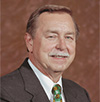


Select one of the options below:
Independent Study requires students to work on an individualized project with a FESA instructor of their choice. Possible projects could include research paper or presentation, program development and implementation, budgets for new resources, etc. Special projects assigned by a student’s fire department or employer may be considered for Independent Study coursework, at the instructor’s discretion. A maximum of 6 credits can be earned through FESA 495.
Students requesting an independent study must contact their desired supervising instructor and http://www.online.colostate.edu/global/docs/forms/fesa_independent_study_form.pd." href="http://www.online.colostate.edu/global/docs/forms/FESA_Independent_Study_Form.pdf" target="_blank" rel="noreferrer noopener" aria-label="Link complete this agreement">complete this agreement PRIOR to registering for FESA 495. To register, submit the completed form signed by both student and instructor to the academic advisor for the Fire and Emergency Services Administration program, Juan Rivas.
Admission to the FESA B.S. program; written consent of instructor
Only students enrolled in the Fire and Emergency Services B.S. program are allowed to register. This course cannot be used towards the Fire and Emergency Services Administration Certificate. Certificate students will not be allowed to register.
Students must consult with an instructor prior to registering to determine scope of Independent Study project and possible credits earned.
For more information about this course, please contact the academic advisor for the Fire and Emergency Services Administration program, Juan Rivas.

Larry Grosse, Ph.D., began his fire service career as the organizer and manager of five volunteer fire departments for the Texas Youth Council facilities. During his tenure as the Chief of Construction for the Texas Youth Council, he was certified as an Advanced Fire Prevention Inspector by the Texas Commission on Fire Prevention Personnel Standards and Education. He led a research team at Texas A&M University that helped define the updated smoke detector requirements for residential occupancy. Dr. Grosse was an invited member of the National Smoke Detector Project sponsored by the U.S. Consumer Product Safety Commission.
Dr. Grosse served as a charter member of the National Fire Academy adjunct faculty, where he worked on a team that developed three courses offered by the National Fire Academy. In his role as an NFA adjunct faculty member, he taught the courses to fire personnel in 38 states.
For 15 years, he served as a professor and department head for the Department of Construction Science at Texas A&M University, then 12 years as a professor and department head of the Department of Construction Management at Colorado State University. In this role, he created the Fire and Emergency Services Administration online degree program at Colorado State University. Since his retirement from CSU, he has continued to teach and serve as a program coordinator for the FESA program.